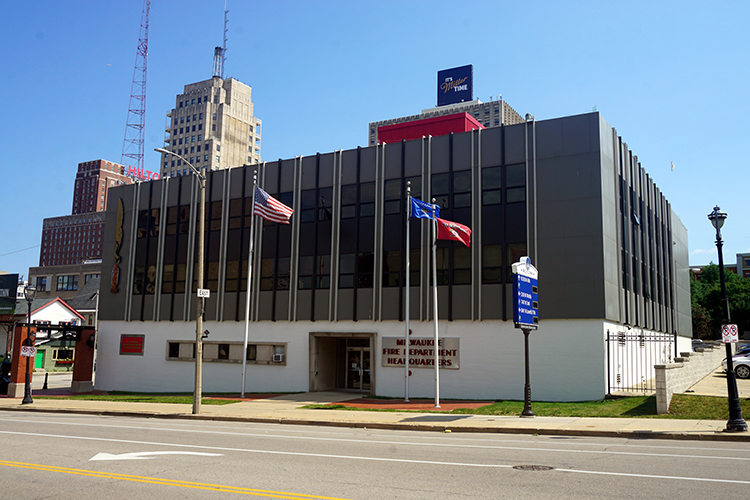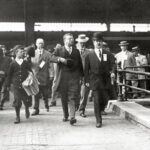A team of historians at UW-Milwaukee is documenting the work of Alonzo Robinson Jr., the first registered Black architect in Wisconsin.
Robinson’s career spanned over four decades and included public buildings, churches and projects for members of Milwaukee’s African American community. Several notable buildings include Mr. Perkins Restaurant at Atkinson Drive and North 20th St.; the Kosciuszko Park Community Center; and the downtown Milwaukee Fire Department headquarters at 7th and Wells, which was renamed in 2021 to honor Alonzo Robinson’s role as designer of the building.
The UWM team is partnering with the Robinson family, the Wisconsin Black Historical Society, and Docomomo Wisconsin, a nonprofit dedicated to modern architecture and design. The team will unveil a website this summer dedicated to Robinson’s life and architectural projects.
“Robinson’s buildings are unmistakably modern while also remaining sensitive to the scale and appearance of their surroundings,” said Justin Miller, UWM architectural historian. “We’re excited and honored to help share these buildings and the stories they tell about African American achievement and resilience.”
The project is funded by a grant from the African American Cultural Heritage Action Fund, a program from the National Trust for Historic Preservation. UWM is one of 40 organizations to receive a total of $3.8 million in grant funding to advance ongoing preservation activities for historic places that represent African American cultural heritage. With more than $91 million in funding, the Action Fund is the largest U.S. resource dedicated to the preservation of African American historic places. Since 2018, the Action Fund has supported 242 projects through its investment of $20 million.
“The Action Fund’s investment in and celebration of 40 historic African American places illustrates our belief that historic preservation plays an important role in American society,” said Brent Leggs, executive director of the African American Cultural Heritage Action Fund and senior vice president of the National Trust for Historic Preservation. “The history embodied in these places is emblematic of generational aspirations for freedom, the pursuit of education, a need for beauty and architecture, and joys of social life and community bonds. That’s why the Action Fund believes all Americans must see themselves and our shared history in this year’s grantee list if we are to create a culturally conscious nation.”







